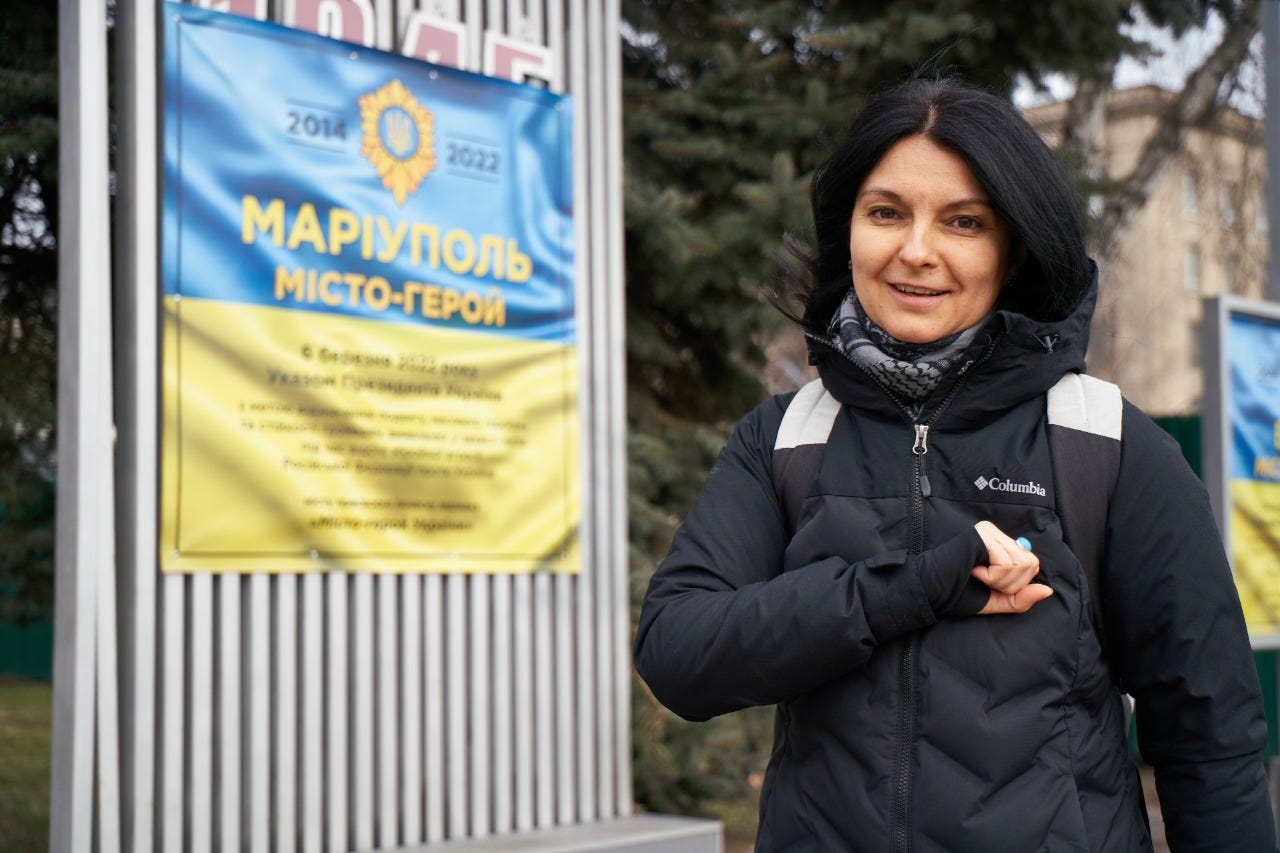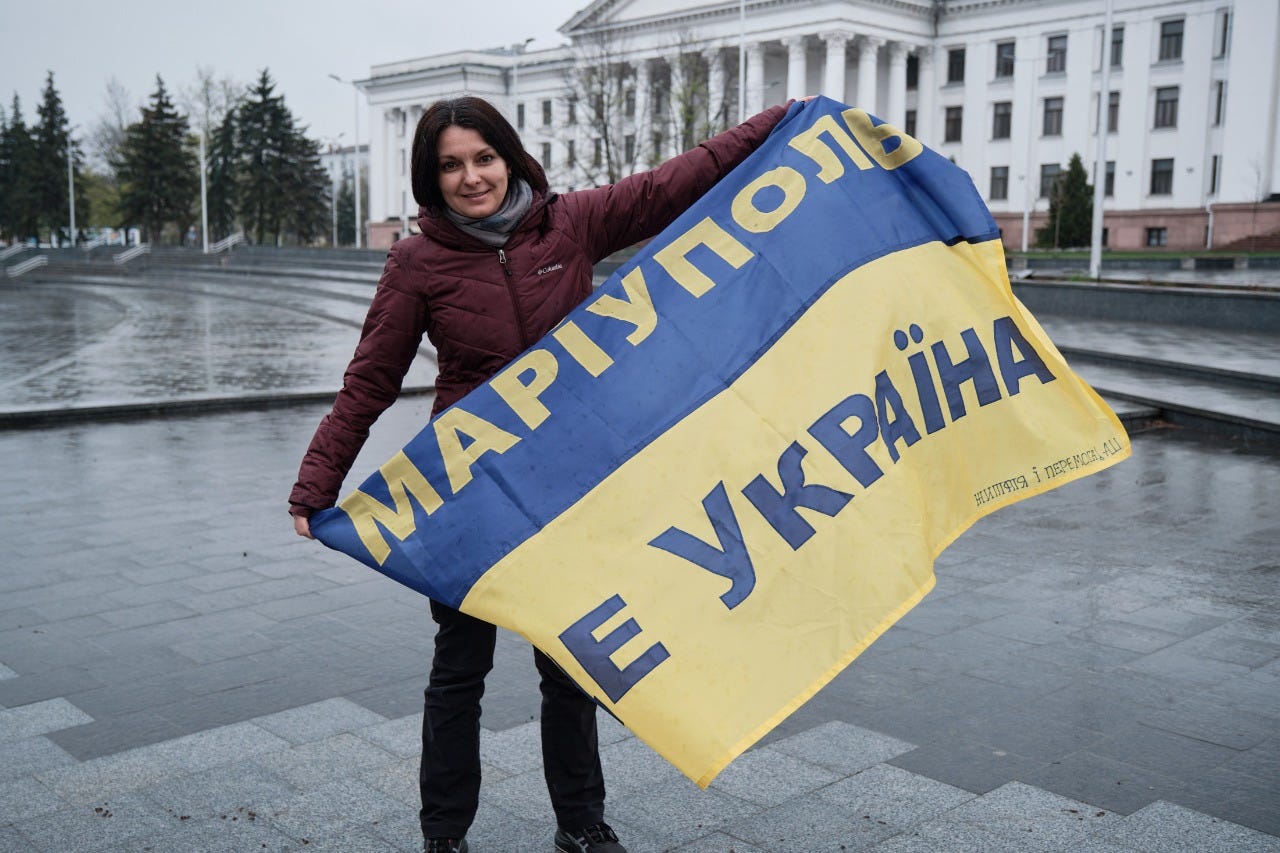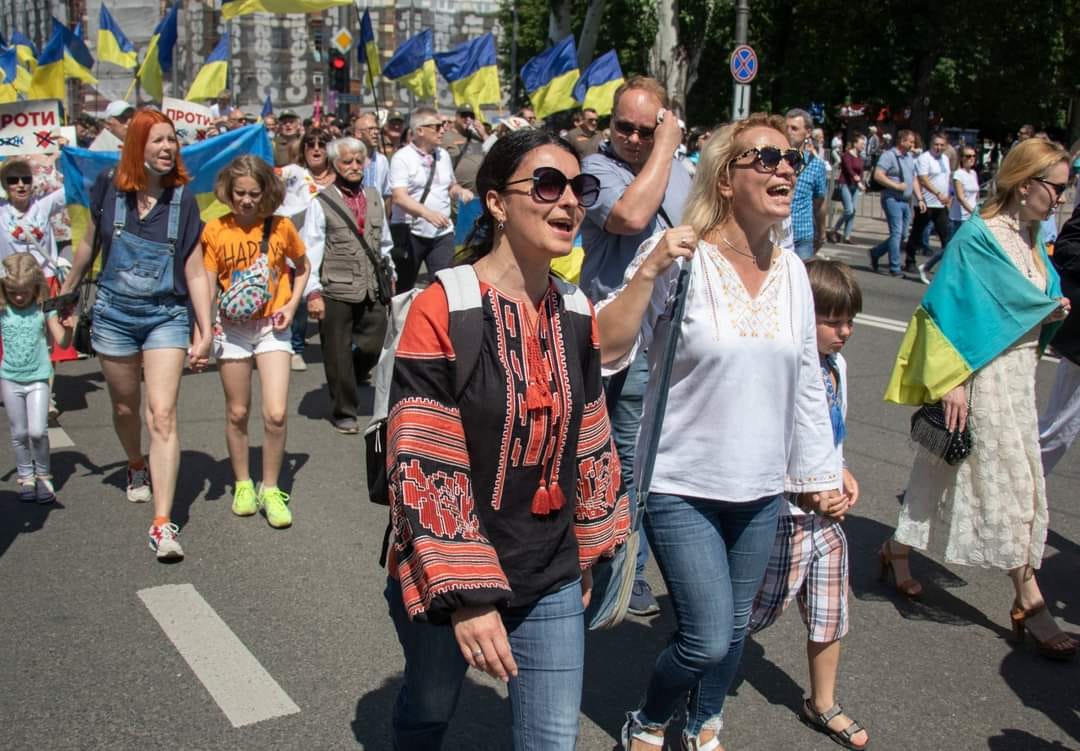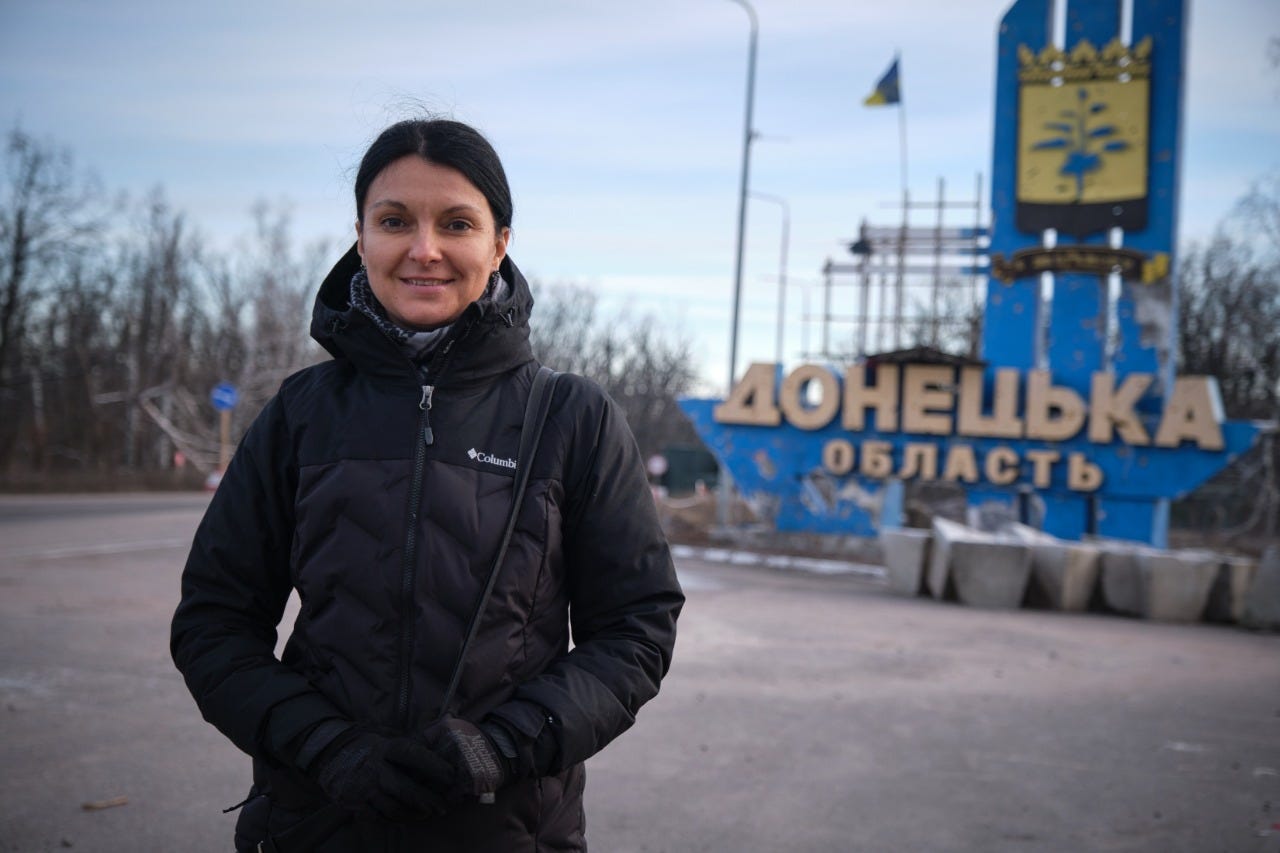The secret operation to hold elections in occupied Mariupol
She risked her life for voting in Russian-occupied Mariupol in 2014. Here’s why she says Ukraine can’t hold elections now. And: Alessandra breaks Ramadan fasts with Crimean Tatars over shurpa soup!
Editor’s Note: The vast majority of readers aren’t paid subscribers. 93.3% read for free. We’re working hard to provide the most original, creative, human-centered journalism on Ukraine out of any publication out there.
If you’ve been enjoying our work, will you upgrade to paid to help us keep going?
The 2014 Ukrainian presidential election in Mariupol was something like a secret operation.
In mid-April 2014, Russian troops occupied the city for the first time. But as the Russian flag flew over government buildings in Mariupol, thousands of Ukrainians wanted to vote in the coming Ukrainian elections.
So did Tetiana Ihnatchenko-Tyurina, who, despite her fear of the Russians, helped to organize the presidential election in a Russian-occupied city. Despite the threat to her life, she wanted to defend Ukraine's right to democratic values — free elections.
As Ukraine puts its presidential election on hold due to martial law, we are reminded of one of the many things Ukraine could lose if it doesn’t win the war: democracy.
Ukrainians hold presidential elections every five years. The 8th presidential election since the declaration of Ukrainian independence was originally scheduled to be held next week, on March 31st.
But Ukrainian law prohibits elections under a period of martial law, which has been in effect since bombs began going off in Kyiv on February 24, 2022.
This year, a majority of Ukrainians expected that on election day, Zelenskyy would be re-elected in a national vote, but under martial law, the Ukrainian constitution forbids holding elections.
According to surveys conducted by the polling group SOCIS at the end of February 2024, almost 60% of Ukrainians are against holding elections during Martial Law.
Even if we could hold presidential elections during the war, with things as they are, they would be incomplete. Ukraine could organize balloting for citizens who have fled Ukraine as refugees. It is also possible to organize elections for soldiers at the front, though it would be a very difficult process. But it's impossible to hold elections in the territories currently occupied by Russia.
It’s an argument that Tetiana, who risked her life to help hold elections before, reluctantly agrees with.
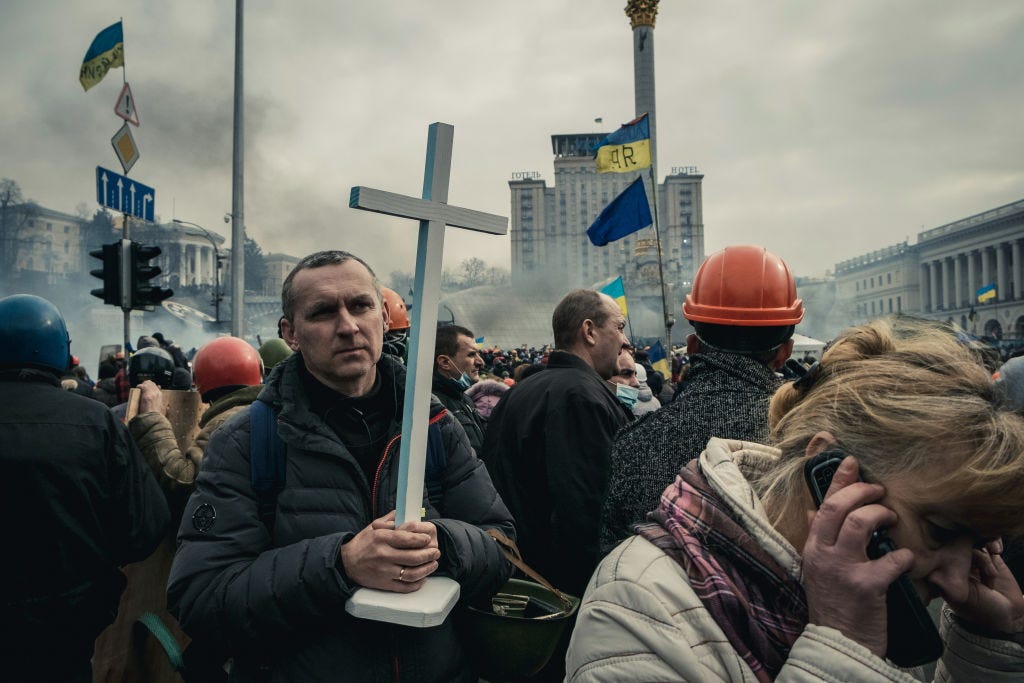
Ten years ago, in 2014, Ukraine was in a similar situation. Already recovering from the bloody Revolution of Dignity in February of that year, Ukraine faced a new and deadly challenge.
In response to Ukraine’s popular uprising, Russia annexed Crimea, and Russian-backed groups occupied parts of Luhansk and Donetsk regions. This included the city of Mariupol, where the flags of the newly formed illegal DPR, LPR, and Russia were flying everywhere. Ukrainian checkpoints with military personnel were set up around the perimeter of the city, but they did not enter the city itself. There was great uncertainty in the region.
Mariupol was occupied on May 6, 2014. The Ukrainian elections were scheduled for just a few weeks later, on May 25.
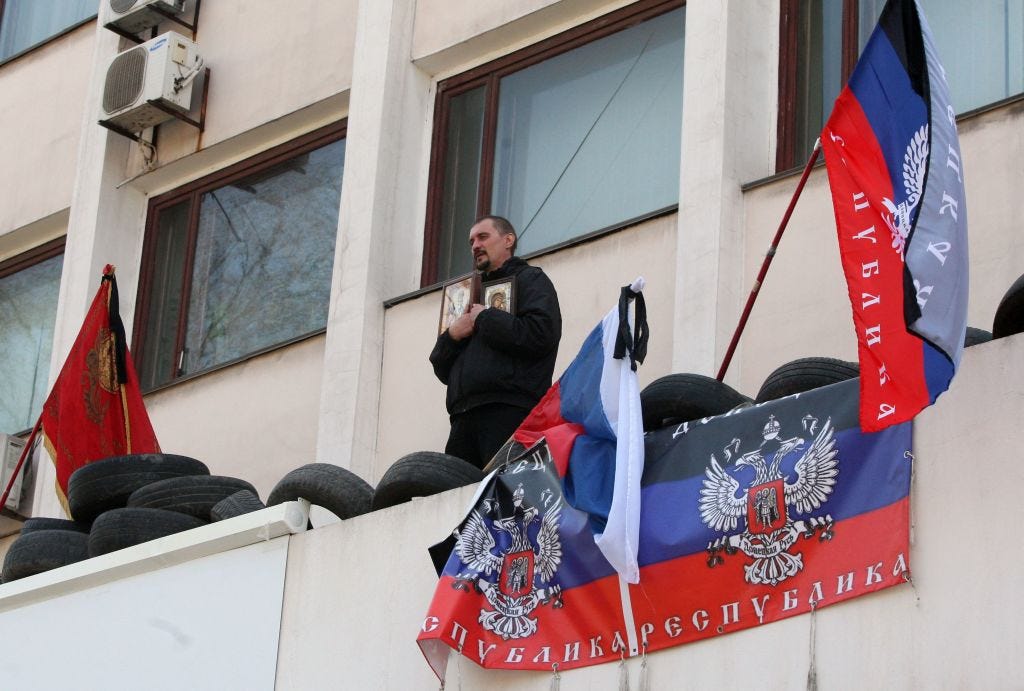
Thus, despite the difficult and frightening situation in the city, the presidential elections had to be held in Mariupol, right under the nose of the Russian backed groups, who observed every step of the Ukrainian activists – and threatened their work and safety.
Tetiana is from the Sumy region but grew up in Mariupol. She spoke Ukrainian and felt like a stranger in Mariupol, where Russian was the dominant language. Nevertheless, she has always been an activist, helping to organize parliamentary and presidential elections several times in a row.
But in 2014, after the Revolution of Dignity, everything changed. She began to see Ukraine differently.
"I felt that our state is not foreign to us... You have to strengthen it, control it, multiply it, and improve it," Tetiana told The Counteroffensive.
So she decided to help the Ukrainian government secretly organize the 2014 presidential elections. For Tetiana and other activists like her, it was important to "cement" the Ukrainian government.
People were scared because they had previously heard cases of militants controlled by the Russians abusing pro-Ukrainian people.
For example, in Donetsk, Russian-backed separatists captured four rally participants who spoke for Ukraine. Their friends later said that the militants tortured, threatened, and abused them. Volodymyr Rybak, a deputy of a city council, took part in a pro-Ukrainian rally. He was then kidnapped in Horlivka, Donetsk region. His body was later found in the river. They tore open his stomach, put a backpack with sand on his back and threw him into the river.
Dozens of people who were ready to defend Ukraine in Mariupol at the cost of their lives decided to work in the election commissions. Illegal groups, controlled by the Russian military, terrorized the representatives of the election commissions.
"They had snipers stationed in the building next door all the time. They didn't shoot, they were just there. We went to the windows, closed the curtains, and thought that if they were not visible, it was not scary," Tetiana said.
She saw a woman whose arm was broken after coming to the election commission to get some documents. Armed men began threatening her, and holding her down. She barely escaped.
“We called an ambulance and it turned out to be a fracture. She said she was still thinking about going to the polls. I'm definitely going now,” Tetiana recalls.
One challenge for these elections was how the Mariupol election commissions could receive ballots while the city was occupied by pro-Russian forces. They gathered in Azovstal in a huge workshop.
A huge iron door opened.
A train pulled up, the wagons opened, and there were ballots inside.
"The delivery of the ballots to Mariupol was a special operation. I don't think they were delivered by rail. I guess that the ballots could have been brought by sea from Berdiansk to Mariupol, and then loaded onto these rail cars," Tetiana said excitedly.
The members of the electoral commissions received the ballots in private, and then took them to the polling stations where the elections were to take place.
Throughout all of this work, Tetiana thought that one day she might not be able to return home because she might be killed for her activism.
"Every time I went to the polling station, I would look back at my apartment and say, 'God, please let me come back here,'" Tetiana said
On May 25, election day, most of the election officials and Tetiana dressed in traditional Ukrainian vyshyvankas. 16% of the electorate turned out to vote for the president of Ukraine in Mariupol.
By the standards of elections not held in times of war and danger, this is an extremely low turnout. But for Mariupol, it was a clear message: all these people were not afraid to come despite the threat to their lives.
Tetiana emphasized that democracy without elections is dead. But she also adds that now is not the time for elections. And having risked her life already for the vote, she has some credibility to make this argument.
"The world needs to understand that it is impossible to hold elections in the occupied territories. The occupation of 2014 and the occupation of 2022 are simply incomparable," Tetiana said.
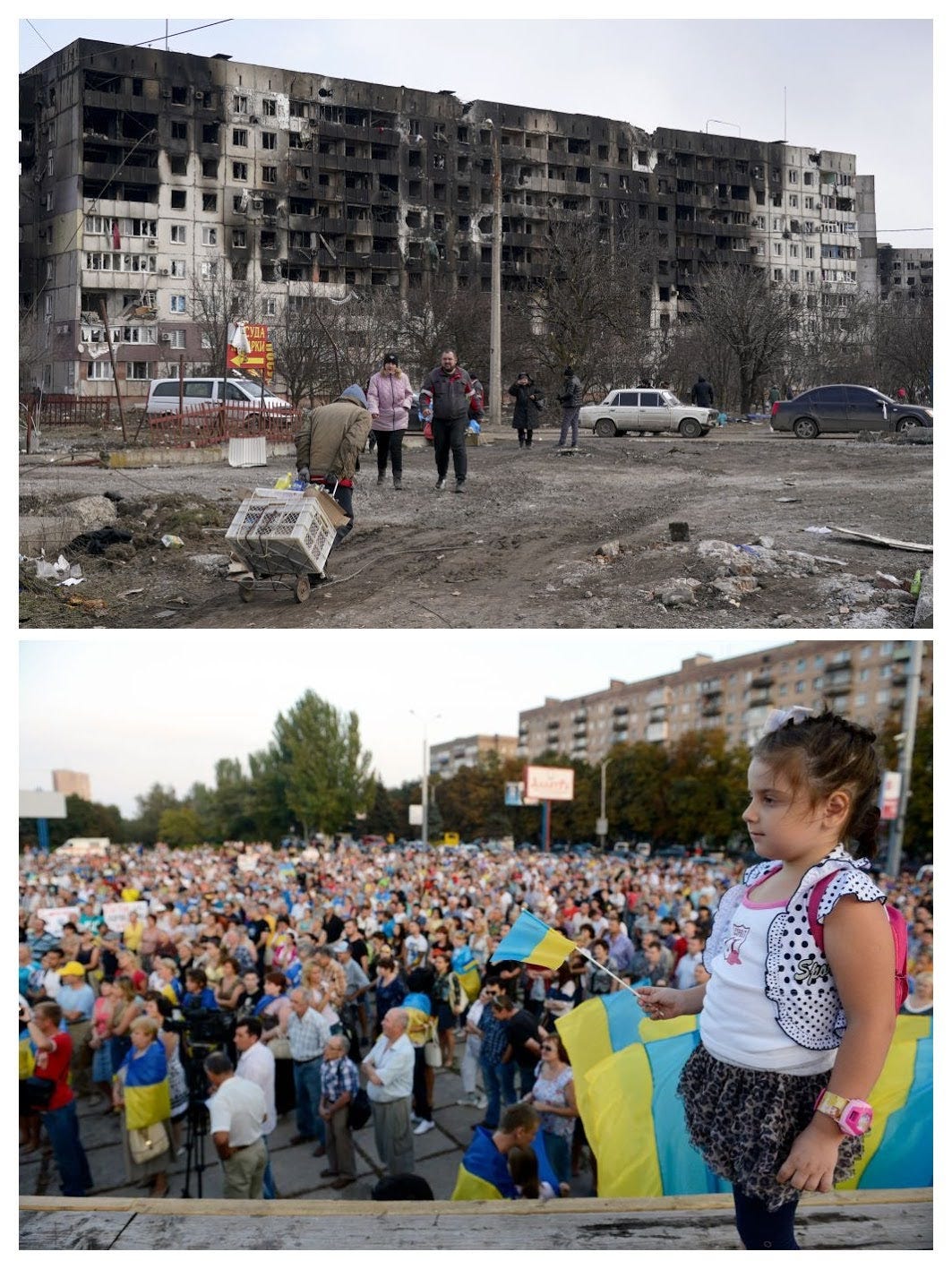
The full-scale invasion has made it close to impossible to guarantee the safety and security of the vote in places that the Russians now occupy. Polling stations could be targets for Russian bombings, and electronic balloting could be vulnerable to hacking or interference that would raise questions about the legitimacy of the elections.
"There is a social contract in Ukraine that says we cannot hold elections, we have to hold on to our state. If the hot phase of the war drags on for years, the government should think about how to meet all these challenges," Tetiana said.
According to a poll conducted by the KIIS polling group in early February 2024, 69% of Ukrainians believe that Zelenskyy should remain president until the end of martial law and that no new elections should be held.
During the last three years of full-scale war President Zelenskyy's rating has decreased from 90% to 60%, according to KIIS, The poll does not specify the exact reasons for Zelenskyy's decline in the rating. However, Zelenskyy's decision to dismiss Commander-in-Chief Zaluzhny likely had an impact, as did the continuing and grinding nature of the war.

If the presidential election were held in 2024, former Armed Forces chief Valeriy Zaluzhny and Volodymyr Zelenskyy could make it to the second round. However, Zelenskyy would lose to Zaluzhny in the second round, according to SOCIS.
Western partners are putting more and more indirect pressure on Ukrainian authorities to hold elections.
For example. Sen. Lindsey Graham, a leading Republican foreign policy voice, called on Ukraine to provide financial and technical assistance to Ukraine to hold elections in 2024, despite martial law.
Tetiana emphasizes that she would like Ukraine’s foreign partners to have more trust in Ukraine.
"We are a little more aware of our reality. We know that at the moment we are better off without elections. And when the time comes, the formal factors of democracy will definitely be respected,” she said.
After the paywall: Russian missile violates NATO airspace in Poland, sending Polish air force scrambling to respond overnight. And in reporter’s notebook, Alessandra visits a Crimean Tatar iftar, breaking the fast with Muslims in Kyiv during their holy month of Ramadan. Also featured: photos delicious shurpa soup!
Keep reading with a 7-day free trial
Subscribe to The Counteroffensive with Tim Mak to keep reading this post and get 7 days of free access to the full post archives.





